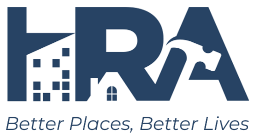What is it?
The goal of this program is to create and maintain an attractive and marketable commercial district by assisting building owners in maintaining their building exteriors within the Business, Historic, and Downtown areas.
Businesses and commercial property owners located within a municipality’s Business, Historic, and/or Downtown areas can receive up to $12,000 in grant funds for improvements to their properties or storefronts. The grant can provide 75%, up to $12,000, of the project cost.
Additionally, grantees may then request up to $50,000.00 in loan funds to further rehabilitate or improve buildings according to the eligible work items listed in the guidelines. Loans are provided at a 2% interest rate and will be recorded as a lien against the property. The loan will amortize over 15 years.
The facade is any part of a building that is visible from a public street, alley or right of way. Most exterior work is eligible for this program. Work can include but is not limited to painting, masonry work, gentle cleaning, window and door replacement, and roofing. The program guidelines contain a complete list of eligible work items.
Notice
Individuals who participate in this program are responsible for a nonrefundable $100 application fee. Participants will also need to report any grants awarded as income. Loans are not considered income unless forgiven.
Procurement & Contractor Information
- A minimum of three proposals from different contractors must be submitted. Contractors must be furnished with the most recent Davis-Bacon wage decision for building rates from the Department of Labor. The decision is available from the Redevelopment Authority. Contractors must attach the wage decision to their proposal.
- Payroll forms for all persons working on facade projects must be filled out weekly for all persons working on the job. Wage-exempt workers do not have to fill out the earnings section of the payroll form but must fill out the name of the job, the job address, home address and phone number, dates and hours worked, and social security number.
- The applicant is responsible for all costs over the original grant amount. The original grant amount is based on the overall cost of the project including the owner’s share and contract price.
Payroll Forms
If a general contractor has been contracted to perform the entire job, including hiring subcontractors that he is responsible for paying, the general contractor is ultimately responsible to collect payroll forms from subcontractors and submit them to the contracting agency—the Redevelopment Authority.
Contractors and Subcontractors – Federal Wage Rate-Exempt and Non-Exempt Persons Working on Jobs with Federal Wage Rates; Definition of Partnerships
Federal wage rates must be used by contractors and contractors’ subcontractors to determine labor rates that they must pay employees. Even if the contractor is a sole proprietor, and he/she is doing all the contract work themselves with no help, the wage decision must be attached to his/her proposal. If a contractor or subcontractor is a partnership, then partners are also exempt from paying themselves the wage rates, if they do all the work themselves, with no help. Partnerships must identify themselves as partners by their insurance policies. Each partner must be listed as an insured on the insurance certificate or policy. Payroll forms for all persons working on the job, including sole proprietors and partnerships, must be submitted for each week that work is done on the job. Sole proprietors and partnerships do not have to fill in the wages paid section of the payroll forms. All other areas of the form must be completed.
Getting Started
The applicant will need to complete and submit a full program application. Our Inspector will visit the property to determine that all aspects of the application are correct and necessary. Once the work is completed, the Inspector will visit once again to ensure that all work has been done according to plan. The grant funds are then released as a reimbursement to the contractor.

